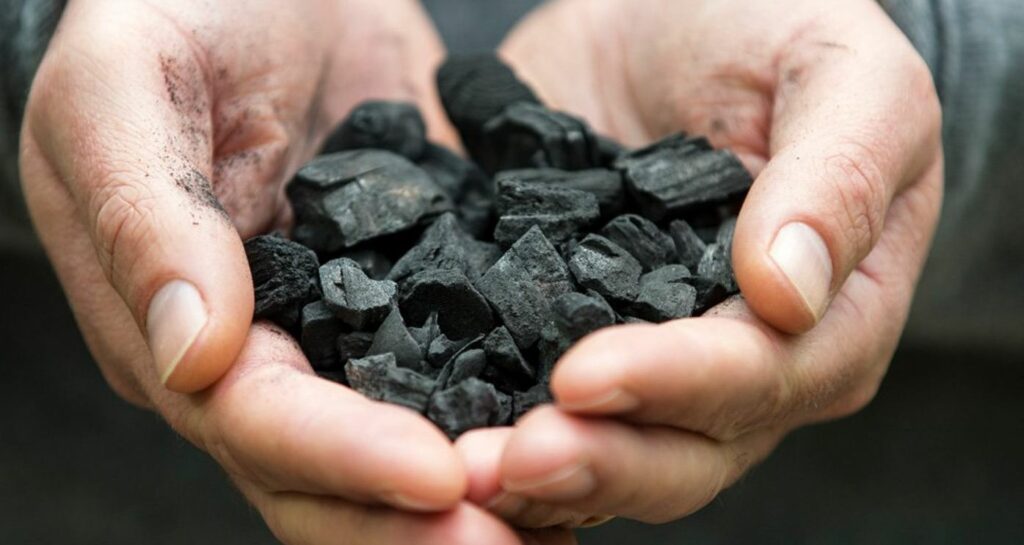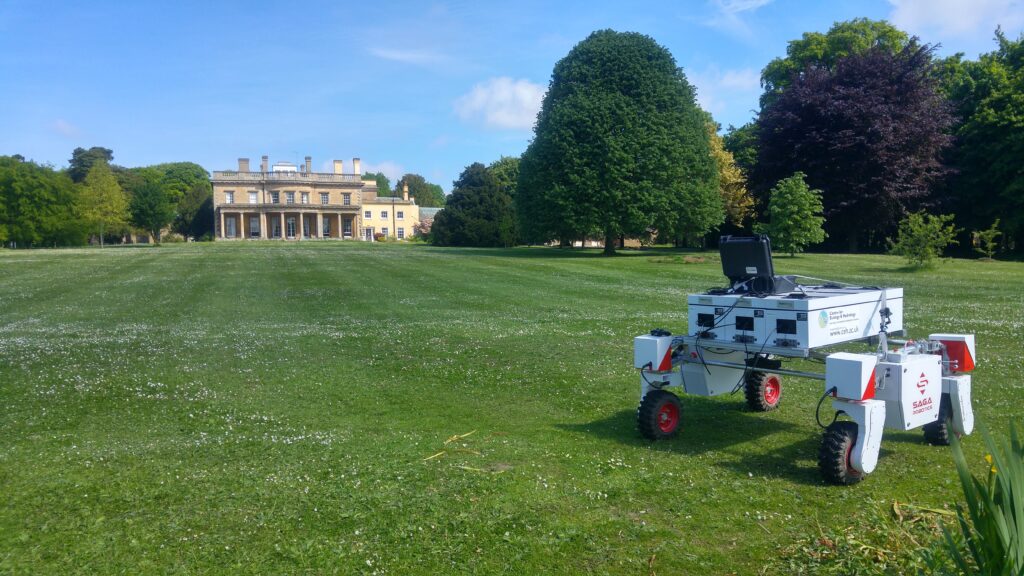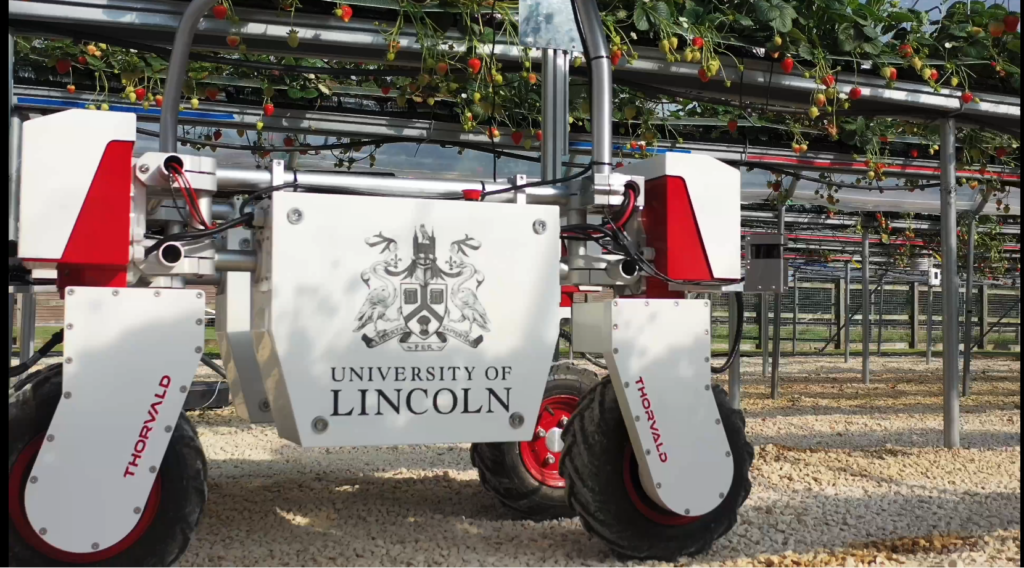Based in the Lincolnshire countryside, a 10-minute drive out of the city, the Lincoln Institute for Agri-food Technology (LIAT) at the University of Lincoln, is an internationally renowned centre for industry-leading research in robotics and automation.
At its Riseholme Campus, LIAT is also home to a working farm with specialist research facilities and sector-leading expertise.
The mission of LIAT is to support and enhance the future of food and agriculture productivity, efficiency, and sustainability through research, education, and technology.
It has been a very busy year for the team, having been involved in many key Agri-tech projects.
In February, LIAT’s Reverse Coal Programme was mentioned as a positive case study in the UK Government’s Environmental Improvement Plan 2023 and highlighted as an example of how peatlands can be more responsibly managed.
The scheme is taking place at the Lapwing Estate, a 5,000-acre estate near Doncaster known for being an innovative leader in ‘rethinking peatlands’.
Peatlands are one of the most fertile lands in the UK for food growth, but the process emits excessive CO2. The alternative is Reverse Coal, which shifts to indoor farming using a sustainable biomass fuel source as its power.
The energy comes from growing biomass feed stock, which is then subjected to a thermochemical treatment (pyrolysis) to create a source of energy. The pyrolysis will also produce biochar which will then be stored in a unique storage facility demonstrating that CO2 can be permanently captured.

Dr Amir Badiee is the Project Lead on behalf of the University of Lincoln.
He said: “Fossil fuels have been used for so long in food production that their negative impact cannot be understated, but this project proves that there is a better way.
“Reverse Coal sequesters carbon and produces food with positive environmental impact. This solves the inherent dilemma of bioenergy crops: the loss of land from food production.”
March saw the launch of Agri-OpenCore, an innovation to deliver an accelerated programme of robotic crop harvesting for horticulture.
Agri-OpenCore, funded by the Department for Environment Food and Rural Affairs’ Farming Innovation Programme, has been introduced to tackle the lack of seasonal harvest labour in the UK horticulture industry. Many crops have gone unpicked this year, leading to large amounts of unnecessary waste.

LIAT at the University of Lincoln is partner in Agri-OpenCore alongside project lead APS Salads with Dogtooth Technologies Ltd, Wootzano Ltd and Xihelm Ltd.
There is currently no robotic system that can match the speed of human picking. Agri-OpenCore aims to make progress in this area by cutting the time and cost of developing a robotic harvesting system that achieves parity with human picking.
To deliver this, Agri-OpenCore will develop the world’s first open development platform for agri-robotic harvesting, with an aim to develop commercial robotic systems for tomato and strawberry harvesting that achieve human-picking-cost-parity in two years.
Also in March, LIAT became a key partner in a new project that will improve farm sustainability and profitability by using nitrogen more effectively.

From Nitrogen Use Efficiency to Farm Profitability (NUE-Profits), funded by DEFRA’s Farming Future R&D Fund: Climate Smart Farming, will aim to make the use of nitrogen as efficient as possible for farms by using data taken throughout a season.
The project will provide farmers with a management system called ‘Framework for Improving Nitrogen’ (FINE) that uses plants as sensors.
As nitrogen use and emissions are reduced, the partnership will explore new income opportunities for farmers financed by reduced carbon emissions. The aim is to make nitrogen use measurements the new benchmark for farmers to utilise nitrogen effectively to provide more profit whilst improving sustainability in farming.
The NUE-Profits project is a partnership of AgAnalyst, the University of Lincoln, Velcourt, Dales Land Net, Dyson Farming, Agreed Earth, Assimila, European Food and Farming Partnerships, N Blacker & Sons, Hill Court Farm Research and Navigate Eco Solutions.
In May, the UK Farm to Fork Summit was held at 10 Downing Street. One of the guests at the summit was Professor Simon Pearson, Director of LIAT, who was joined by 70 other attendees from around the food sector.

The Prime Minister and members of the Cabinet viewed agri-tech research displays and spoke with the exhibitors. Additional support for the food sector was announced from the Government with a focus on agri-tech, which will involve research carried out by Professor Simon Pearson and the team at LIAT.
Speaking shortly after the event, Professor Simon Pearson, Director of LIAT, said:
“The Farm to Fork Summit was a fantastic opportunity for key players in the industry to demonstrate how important the food sector will be to the future of this country.
“Rishi Sunak and Cabinet Ministers took great interest in both the agri-tech and glasshouse sectors, which will involve work from LIAT and its partners, and have pledged a significant investment to accelerate growth over the coming years.”
In September it was confirmed that LIAT would be home toa new net zero glasshouse research and development facility, set to be built on the University of Lincoln’s Riseholme campus.
This new purpose-built glasshouse, funded by the Greater Lincolnshire Local Enterprise Partnership, will offer access to specialist research infrastructure and innovation support services. This will allow SMEs and other businesses in the agricultural sector to adapt or improve their products or services.

The glasshouse will be sub-divided into independently controlled compartments, facilitating the delivery of multiple projects at the same time throughout the year.
Eligible businesses will have access to research and knowledge transfer opportunities from experts at the University of Lincoln who will support businesses within the industry to adopt new technology, implement new processes and develop new products to transition into modern, technology-enabled businesses.
Most recently, in what has been a very busy and prosperous year for LIAT, an announcement was made that the Universities of Lincoln and Cambridge had been awarded a £4.9 million grant to fund the region’s drive to become a global innovation centre for agricultural technology.
The Lincolnshire and Cambridgeshire (LINCAM) region is already a major UK production centre for crop-based agriculture and the associated supply chain, leading to what is recognised as a national agri-tech cluster.
At the Universities of Lincoln and Cambridge, agri-food innovation is focused on digital technologies, including robotics and artificial intelligence, to boost productivity. Now, the hope is that the Place Based Impact Acceleration Account award from the Engineering and Physical Sciences Research Council – the main funding body for engineering and physical sciences research in the UK – will deliver a step change in activity.

Simon Pearson, Founding Director of LIAT, said: “The LINCAM agricultural sector supports 88,000 jobs, generates a value of £3.8 billion and farms more than 50% of the UK’s grade 1 land. However, despite this scale, there are still significant challenges and opportunities.
“Food production accounts for 24% of all UK greenhouse gas emissions, leads to significant biodiversity losses and drives challenging social issues – not least from seasonal worker influxes to rural communities. In addition, farmers are under relentless cost pressures which are eroding supply chain equity and local economies.
“These challenges are acute across the LINCAM region, but this funding award offers an opportunity to harness agri-tech to secure sustainable growth, bringing high-value and skilled jobs to the region.”

